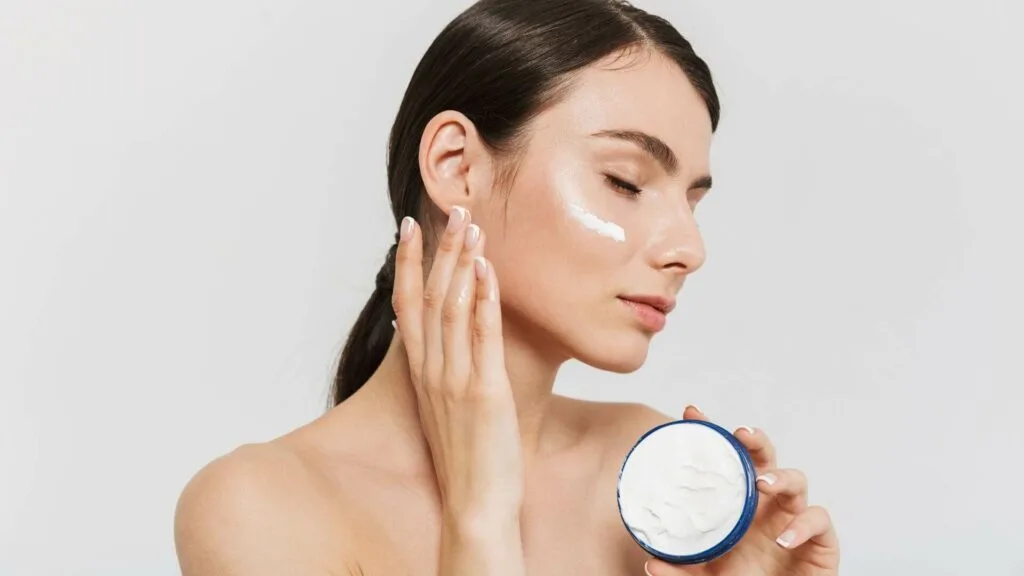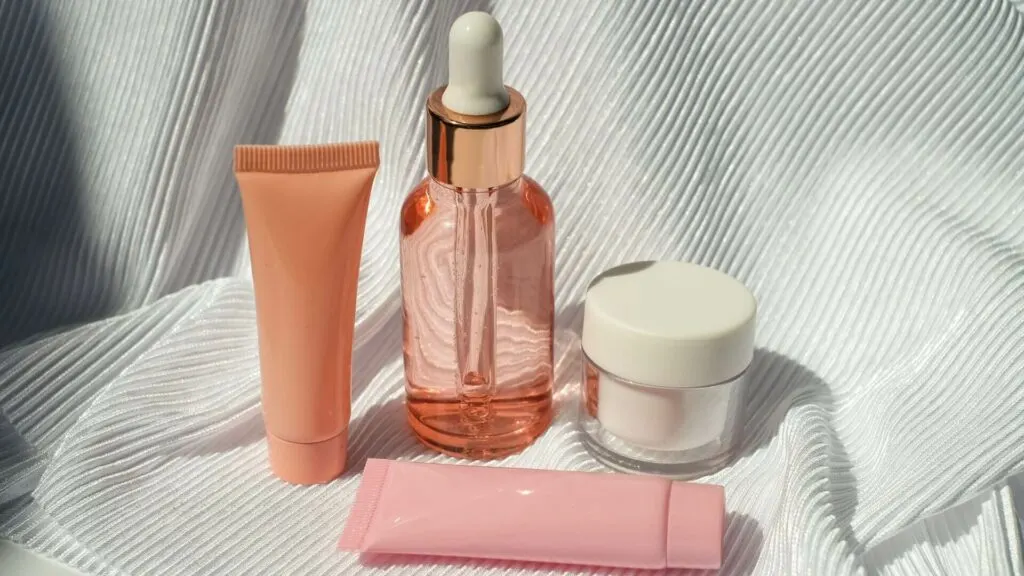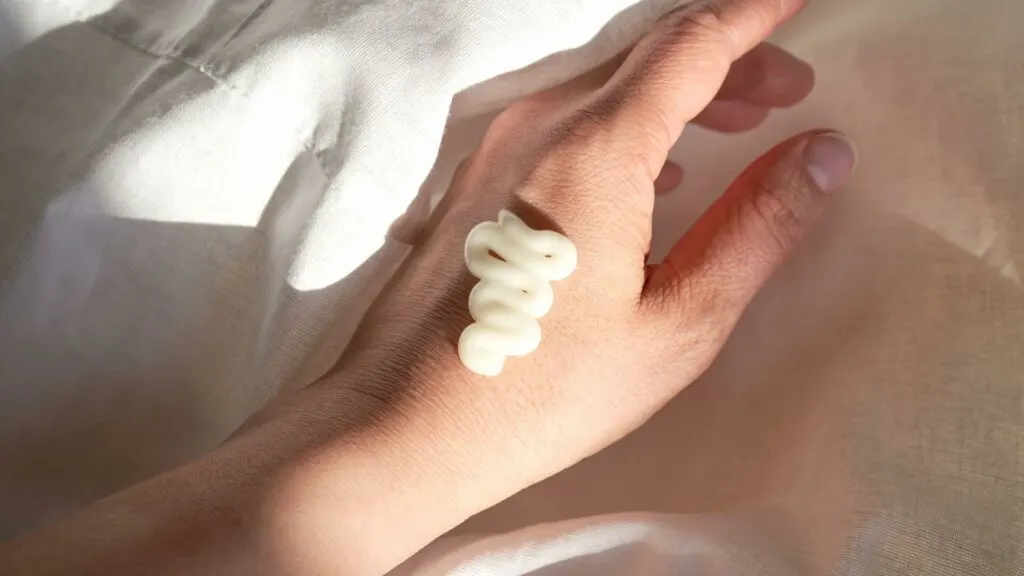Does your skin break out, turn red, or get upset and react? Probiotics might be the answer to your face problems. The trillions of microorganisms that live on top of your skin must keep viruses from getting in. In other words, your skin bacteria can’t work right when it’s damaged.
Scientists have found a link between a microbiome that isn’t working properly and several common skin problems, such as acne, rosacea, and atopic dermatitis. This blog will talk about why you should use probiotic skincare. Skincare products with probiotics can help repair and keep up a healthy skin microbiome, which can make skin clearer, calmer, and stronger.

Understanding Prebiotics, Probiotics, and Postbiotics
Interest in prebiotics, probiotics, and postbiotics in skincare has surged due to their roles in sustaining a healthy skin microbiome and enhancing overall skin well-being. Understanding their distinctions is crucial for informed choices about skincare products and routines.
Definitions and Differences
Prebiotics
Prebiotics are fibers that can’t be digested and that are found in plant-based foods. They feed good bacteria in the gut and skin, which helps keep the microbiome healthy. In skin care, they strengthen the skin’s barrier and make it better at keeping wetness in.
Probiotics
Live good bacteria, like lactobacillus and bifidobacterium, keep the gut and skin’s microbiome in balance, which improves barrier function and lowers inflammation.
Postbiotics
Enzymes, peptides, and vitamins are examples of metabolites that come from probiotic bacteria. They strengthen the skin barrier, make it more hydrated, and lower inflammation and signs of age.
Roles in Skincare
Prebiotics, probiotics, and postbiotics play complementary roles in skincare, working together to support a balanced and healthy skin microbiome. Incorporating products that contain these components can contribute to improved skin health, resilience, and appearance.
- Prebiotics: Nourish beneficial bacteria, sustain a healthy microbiome, fortify natural defenses, enhance moisture retention, and decrease irritation.
- Probiotics: Promote microbial balance, strengthen the skin barrier, and support a resilient complexion, particularly beneficial for sensitive skin.
- Postbiotics: Aid skin repair, boost collagen production, refine skin texture, and create a healthy environment for beneficial bacteria, curbing harmful microbe growth.
Benefits of Probiotic Skincare

Probiotic skincare has garnered significant attention for its potential to promote healthy skin and hair. By harnessing beneficial bacteria, probiotic skincare products offer a range of advantages that enhance overall skin wellness and beauty.
Balancing the Skin’s pH
Probiotic skin care products help keep the pH levels of the skin in balance, which is important for a healthy skin layer. They make the surroundings a little acidic, which helps the body’s natural defenses fight off pathogens and environmental stressors. This balance keeps problems like acne, dryness, and discomfort from happening.
Reducing Oxidative Stress
Antioxidants from probiotic bacteria in skin care products lower oxidative stress, which is caused by free radicals and can cause skin to look dull and age faster than it should. These results are fought off by probiotic skin care, leaving the skin looking younger and brighter.
Improving the Skin’s Moisture Barrier
As a result, probiotics improve the skin’s moisture barrier, making it more hydrated and stopping it from evaporating. This helps keep skin smooth, flexible, and strong, which is especially good for people with dry or sensitive skin.
Enhancing Hair Quality
Probiotics in hair care products feed the scalp and hair cells, which helps keep the scalp healthy, gets rid of dandruff and itching, and encourages hair growth. Hair treatments with probiotics make hair smoother, shinier, and easier to style.
Reducing the Risk of Skin Cancer
Some studies show that probiotics may help protect against skin cancer, but more research is needed. Because probiotic skin care can help keep your skin healthy and boost your immune system, it may lower your chance of some skin cancers over time.
Probiotics and the Skin Microbiome
Understanding how probiotics contribute to skin health through the skin microbiome is crucial. Probiotics play a significant role in maintaining a balanced and healthy skin microbiome, which is vital for overall skin health and appearance.
Probiotics and the Skin Microbiome
Role of Good Bacteria in Promoting Skin Health
Probiotics positively influence the skin microbiome by maintaining a diverse and balanced ecosystem of microorganisms on the skin’s surface. This balance supports the skin’s natural defenses, regulates inflammation, and enhances skin barrier integrity.
Probiotics compete with harmful bacteria, produce antimicrobial substances, and modulate the skin’s immune response, reducing the risk of skin infections and inflammatory conditions.
Impact of Imbalance on Skin Microbes
Disruption in the balance of skin microbes can lead to various skin issues like acne, eczema, rosacea, or fungal infections. Dysbiosis compromises the skin’s barrier function, making it more susceptible to environmental factors and triggering inflammatory responses. Restoring microbial balance with probiotics can alleviate symptoms and promote skin recovery.
Probiotic Skincare Products
The skincare industry has witnessed a notable trend with the emergence of independent skincare lines focusing on the skin microbiome. These brands are incorporating prebiotics, probiotics, and postbiotics into their products, recognizing the importance of microbial balance for skin health.
Emergence of Independent Skincare Lines
In recent years, a wave of independent skincare brands has emerged, placing a strong emphasis on the skin microbiome. These brands prioritize formulations that support a healthy microbial balance on the skin, recognizing the role of beneficial bacteria in maintaining skin health and vitality. They often use natural and gentle ingredients to nurture the skin’s ecosystem while addressing specific skincare concerns.
Inclusion of Prebiotics, Probiotics, and Postbiotics
One of the key features of these independent skincare lines is the inclusion of prebiotics, probiotics, and postbiotics in their products. Prebiotics act as nourishment for beneficial bacteria, encouraging their growth and activity. Probiotics, on the other hand, are live bacteria that directly contribute to balancing the skin microbiome. Postbiotics are the byproducts of probiotic fermentation, containing beneficial compounds like enzymes, peptides, and organic acids that support skin health.
Benefits of Probiotic Skincare Products
These probiotic skincare products offer a range of benefits, including improved skin barrier function, reduced inflammation, enhanced moisture retention, and overall skin resilience. By promoting a balanced and healthy skin microbiome, they contribute to clearer, more radiant skin and address various skin concerns such as acne, eczema, and sensitivity.

Start Trying Probiotic Skincare!
Probiotic skincare is poised to revolutionize the beauty industry by tapping into the power of beneficial bacteria. These products offer innovative solutions for a healthy skin microbiome and diverse skincare issues. Ongoing research advancements will continue to redefine skincare norms and enhance skin health and beauty standards.

Jessi is the creative mind behind The Coffee Mom, a popular blog that combines parenting advice, travel tips, and a love for all things Disney. As a trusted Disney influencer and passionate storyteller, Jessi’s authentic insights and relatable content resonate with readers worldwide.
